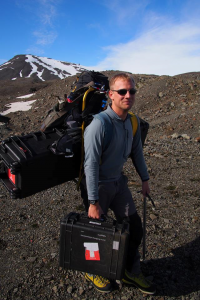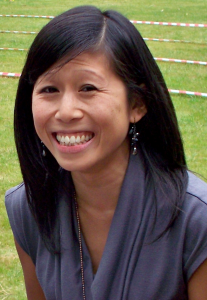Karen Fry
Master Technician
Biological Services Facility, Faculty of Biology, Medicine and Health
Describe your work area and its importance.
Working with animals used in the field of medical research is an important and valued job. Caring for animals used in medical research means you are also contributing to helping find treatments for debilitating human diseases and conditions. Many people’s lives have been saved or just made so much better using the information gained from this type of work. You only have to look at the treatments discovered using animal research and how these treatments have improved the lives of men, women & children to know that it’s important. The animals in our care are looked after with compassion and respect, and we as a University are constantly doing everything we can to ethically reduce the number of animals we use. Whenever possible, animals within our care are replaced to use other non-animal methods to gain the same results. When replacement isn’t possible and animals are used we are constantly looking for ways to refine the work to use the least number of animals possible.
On a typical day, what do you spend most of your time on?
My typical day at work consists of the general husbandry and care of rodents. This mainly involves the health checking, cleaning and feeding of mice. I have many other duties such as staff supervision, ordering of supplies, contact with researchers and the cleaning and general upkeep of our SPF (Specified Pathogen Free) animal unit. There are also many other areas to my job (too many to mention) and this variation is one of the reasons that I love it so much.
Describe your career path to date, including highs and lows.
I started in retail work which suited my family situation at the time. As soon as the children were older I began to pursue my dream of working with animals. I studied for a BTEC National Diploma in Animal Care alongside working part-time. After completing the course in 2004 I got the trainee animal technician job at the University but carried on studying whilst working. I did several Open University courses (all biology based) and some work defined courses (1 year/2 year) all whilst working full-time. Finally I completed level 5 & all but one module on level 6 animal technology degree level course. I stopped studying late 2016.
High: Completing all of my study work whilst working full-time and raising a family, and of course my recent upgrade.
Low: Not being able to speak about my job openly. I am proud of what I do and it would be wonderful to speak about it without fear of reprisals. Close friends and family know what I do but I’m not sure they fully understand what’s involved.
What drives you?
Firstly working with animals. I have always had a life-long love of animals. Being paid for doing what you love is the best motivation in the world. This Job is challenging and different everyday which is why I love it. I know that I am making a huge difference and I am helping towards medically treating some terrible human illnesses. Now that I have been upgraded I have a new level of responsibility, which adds a new interesting dimension to my job. I work with an excellent hard-working team which enables the animal unit to run as efficiently and ethically as possible. I am lucky enough to work in a pleasant work environment which makes going to work every day a pleasure.
Tell us a funny story, work-related or not:
On the day of my very first interview for the trainee position at the University I was asked to come to the Stopford Building reception and ask for Mr Terry Priest. I was so nervous that I told the receptionist that I had an interview scheduled with Terry Waite! I quickly corrected myself and I think (hope!) that I got away with it.
What’s the best career advice you’ve received?
I don’t recall being given any specific career advice. The best career advice I could give is that it’s never too late to train for something you’ve always wanted to do. I came into this type of work quite late because of family commitments, but have never regretted it. Yes it was a struggle sometimes, but I’m glad I did it. You spend too much time at work to be doing something that doesn’t make you happy. If you’re unhappy with your present role, retrain. You’ll be so glad you did.

 Thomas Bishop
Thomas Bishop Julia Cheung
Julia Cheung